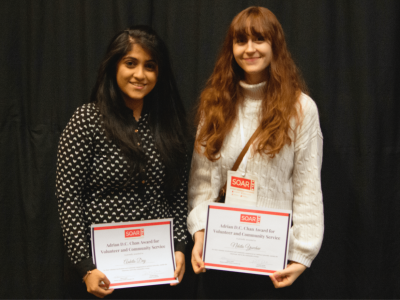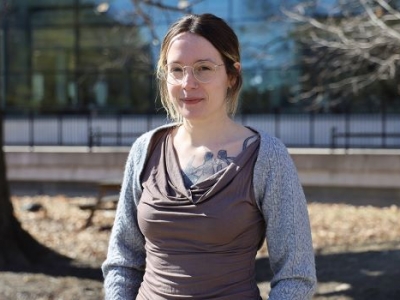**This ongoing series is looking at PhD alumni who are doing non-academic jobs. Each person tells their story and provides tips on finding work in the non-academic sector. You can read other stories in this series by going to our Alumni Success Story archive.
 “I wouldn’t have the job I now have without my PhD,” says Rod Story, a financial advisor-analyst with the Parliamentary Budget Office (PBO).
“I wouldn’t have the job I now have without my PhD,” says Rod Story, a financial advisor-analyst with the Parliamentary Budget Office (PBO).
Story graduated with his PhD (2012) in Management and MBA from Carleton’s Sprott School of Business as a mid-career transition from his previous life as a software designer/architect/manager.
Working in the Costing Group of the PBO, Story explains that the group has costed such things as military procurement (F35s, navy supply ships), bills before Parliament and the Afghanistan war to name just a few. His first project was costing the criminal justice system in Canada for the past 11 years. His report, published in March, is available on the PBO website.
His original career gave him an in-depth understanding of systems and software with a rudimentary exposure to business. He then pursued an MBA, to obtain a better understanding of business and finance, and a PhD to obtain a more theoretical understanding of business and finance.
His PhD research investigated the interaction between finance, innovation and growth for small and medium enterprises (SMEs) across Canada using a comprehensive database from Statistics Canada. Explains Story: “The idea here was that finance, innovation and growth are interrelated such that a business needs to consider all three when making decisions and each of these factors affect each other.”
“A byproduct of taking my PhD and writing my thesis was that I took several statistics courses and applied this knowledge to a large dataset at Statistics Canada,” says the alumnus. “This is where my previous background in software and system analysis combined with the PhD/MBA statistical knowledge and large dataset manipulation made me into what is now termed a data scientist.”
Firms that need to analyze their data often need to hire upwards of four people: one to model the data, one to write the software to manipulate it, another to statistically analyze it and yet another to create the visualization of it. Story’s unique background allows him to do all of these jobs which provides value in the workplace. His current job at the PBO requires all of these skills.
For newly graduated PhD students looking for work, Story says: “Besides the obvious method of continuously networking, the other one is discovering how to package your diverse skillset to be of value in the marketplace. I didn’t know the concept of being a data scientist before I started my job search and that my various skills allowed me to do this job. It is through the discussions and interviews that you refine your value proposition. Think of it as both product and market development. Seeing the need and marketing yourself as the solution for it.”
Tips from other PhD alumni include:
“Network early and often. Your peers and colleagues can provide you with the connections to find that first job. Also, try to best to distinguish yourself from other job seekers. It is a very competitive job market, and novel skill sets and accolades can definitely help grab the attention of hiring committees.” –Kyle Hanson
“Don’t limit yourself by what is typically done. Look into every opportunity that presents itself and you might surprise yourself by what you find.” –Crystal Blais
“If you’re looking for work outside of the academy, be comforted to know that there are many PhDs in non-academic jobs. Be proud of your PhD and use it as a source of confidence.” — Howard Fremeth
“Many opportunities are not posted, so keep in touch with your friends and colleagues, and try to network as much as possible. Your next opportunity may be only a conversation away. Don’t be afraid to approach organizations and let them know what you are able to offer.” — Jeff Gilchrist
Monday, October 21, 2013 in Alumni Success Stories, News
Share: Twitter, Facebook




